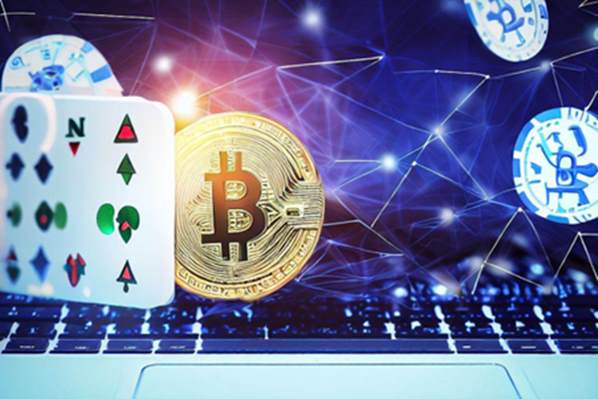
The world of gambling has experienced a profound transformation in recent years, driven by rapid technological advancements. This article delves into the exciting changes brought about by innovation and how they have reshaped the gambling industry as we know it. From the convenience of online betting to the immersive experiences of virtual reality gaming and the advent of cryptocurrencies, we explore how technology has revolutionized gambling, offering new opportunities and challenges for both players and operators alike.
Technological Revolution in Gambling
The Technological Revolution in Gambling refers to the transformative impact of modern technology on the gambling industry. Innovations such as online casinos, mobile betting, virtual reality gaming, and blockchain-based platforms have revolutionized the way people gamble, making it more customer-focused, convenient, immersive, and secure. SoCanadianCasinos, as a prominent player in this ever-evolving landscape, has been at the forefront of embracing these technological advancements to provide players with an unparalleled and safe gambling experience, while also striving to meet the emerging needs and preferences of the digital-savvy audience. These advancements have not only expanded the market but also presented new challenges and opportunities, pushing the industry to adapt and evolve in the digital era.
A Faster and Easier Way to Gamble
One of the new technologies revolutionizing online casinos and making gambling even faster and easier is the integration of Artificial Intelligence (AI). AI-powered systems are now being used to enhance user experiences and streamline various aspects of online gambling platforms.
Through AI algorithms, online casinos can offer personalized game recommendations based on a player’s preferences and past behavior, creating a more tailored and engaging experience.
Additionally, AI chatbots are being employed for customer support, providing instant assistance to players and resolving queries efficiently.
Furthermore, AI-driven risk assessment tools are utilized to identify and prevent fraudulent activities, ensuring a safer gambling environment.
Virtual Reality Gaming: The Future of the Industry
Virtual Reality (VR) gaming is poised to revolutionize the gambling industry and is widely considered the future of gaming. This cutting-edge technology offers players an unparalleled level of immersion, transporting them to realistic and interactive virtual worlds. In the context of the gambling industry, VR gaming has the potential to transform the way players experience casinos, providing a more engaging and social environment that closely mimics the excitement of brick-and-mortar establishments.
One of the most significant advantages of VR gaming in the gambling industry is the sense of presence it offers. Players can step into virtual casinos, walk around the floor, and interact with other players and dealers in real-time, creating a more social and authentic experience. This level of immersion not only enhances the thrill of gambling but also fosters a sense of community among players, making it a highly attractive option for both traditional casino enthusiasts and new generations of tech-savvy players.
Moreover, VR gaming allows for the development of innovative and unique casino experiences that go beyond the limitations of physical casinos. Players can participate in games set in fantastical environments or themed after their favorite movies, adding an element of fantasy and adventure to their gambling pursuits.
As technology advances and becomes more accessible, VR gaming is expected to gain wider adoption in the gambling industry. The potential for growth is immense, and developers are continually pushing the boundaries to create more immersive and enjoyable VR gambling experiences.
However, some challenges remain before VR gaming becomes mainstream in the industry. The cost of VR equipment can be a barrier for some players, and widespread adoption may require more affordable and user-friendly VR hardware. Additionally, developers need to ensure that VR gaming platforms are secure and protected from potential risks, such as virtual fraud or hacking.

Blockchain Technology and its Impact on Gambling
Blockchain technology has emerged as a groundbreaking innovation with the potential to revolutionize various industries, including gambling. At its core, blockchain is a decentralized and distributed ledger system that allows secure and transparent recording of transactions. Unlike traditional centralized systems, blockchain operates on a network of computers, known as nodes, where each node has access to the same information, ensuring data integrity and immutability. This technology has brought significant changes to the gambling sector, offering numerous advantages and transforming the way people engage in betting and gaming activities.
Transparency and Fairness
One of the most prominent impacts of blockchain on gambling is the enhancement of transparency and fairness. Traditional online casinos and betting platforms often faced skepticism due to the lack of transparency in their operations. With blockchain, every transaction and bet is recorded on the public ledger, and players can verify the fairness of games through smart contracts. Smart contracts are self-executing contracts with predefined rules, ensuring that neither party can alter the outcome once the terms are agreed upon. This level of transparency fosters trust among gamblers, making them more willing to participate in gambling activities.
Security and Anonymity
Blockchain technology employs advanced cryptographic techniques to secure data and transactions. Unlike conventional platforms where users must share sensitive personal information to create accounts, blockchain-based gambling platforms can offer greater anonymity. Players can use cryptocurrency wallets to deposit and withdraw funds, reducing the risk of identity theft or financial fraud. Additionally, blockchain’s decentralized nature makes it resilient to hacking attempts, as there is no single point of failure that cybercriminals can exploit.
Instant Transactions
Blockchain enables near-instantaneous transactions, irrespective of geographical locations. Traditional online gambling platforms often encounter delays in processing deposits and withdrawals due to the involvement of intermediary financial institutions. Blockchain eliminates these intermediaries, allowing players to transfer funds directly and quickly between their wallets and the gambling platform.
Global Accessibility
Blockchain technology is accessible to anyone with an internet connection, eliminating the geographical limitations that were common in traditional gambling establishments. Players from around the world can participate in blockchain-based gambling platforms without the need to comply with complex regulations or face barriers related to local currencies.
Reduced Costs
By cutting out intermediaries and streamlining processes, blockchain gambling platforms can significantly reduce transaction fees. This benefit extends to both the operators and the players, making gambling activities more cost-effective for all parties involved.
Tokenization and Innovation
Blockchain has opened up new possibilities for tokenization of assets and creative gaming concepts. Non-fungible tokens (NFTs) have gained traction in the gambling industry, enabling unique in-game items, collectibles, and virtual assets. These tokens can be bought, sold, and traded on various marketplaces, creating a new ecosystem within the gambling industry.
The author said, “The decentralized nature of blockchain empowers gamblers and operators alike, fostering trust and driving innovation within the gambling ecosystem. As the technology matures and gains more mainstream acceptance, blockchain-based gambling is expected to become increasingly prevalent, shaping the future of the industry”.
The Emergence of Crypto-currencies in the Gambling Market
The emergence of cryptocurrencies in the gambling market has brought significant benefits to both players and operators. Cryptocurrencies offer a secure and anonymous way for players to make deposits and withdrawals on gambling platforms, eliminating the need for traditional banking methods and associated delays. Additionally, using cryptocurrencies reduces transaction costs, making it more cost-effective for both players and operators. The integration of cryptocurrencies has also opened up new markets for online gambling, attracting tech-savvy players who appreciate the transparency and decentralization that cryptocurrencies provide.
Conclusion
The gambling industry has experienced a remarkable technological revolution, shaping the way people gamble and interact with games. The advent of faster and more convenient platforms, coupled with the potential of virtual reality gaming, has transformed the gambling customer experience. Furthermore, the integration of blockchain technology and cryptocurrencies has brought about enhanced security, transparency, and accessibility. As technology continues to advance, the gambling industry is set to undergo further innovations, promising a thrilling future for both operators and players alike.




